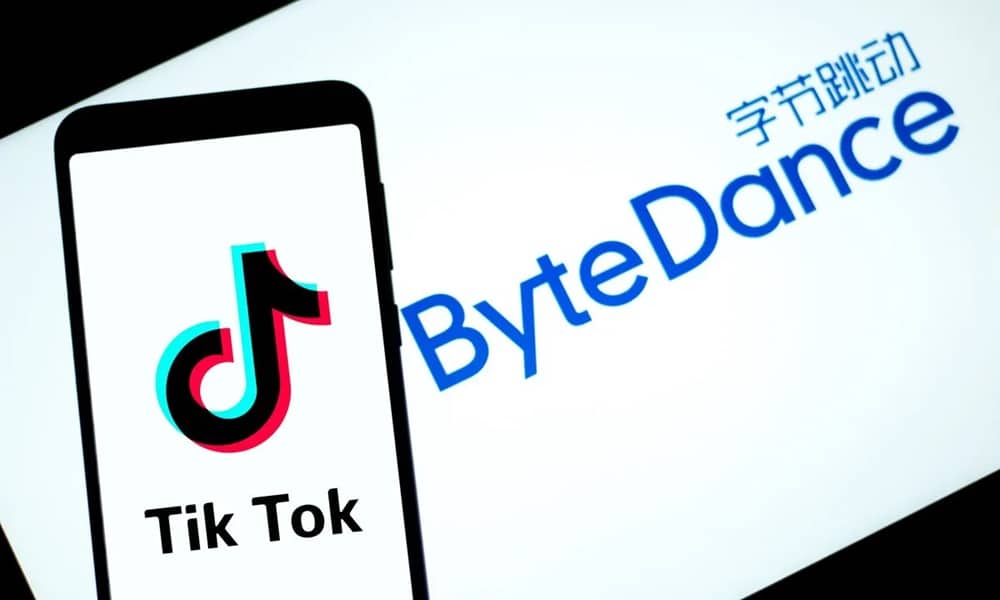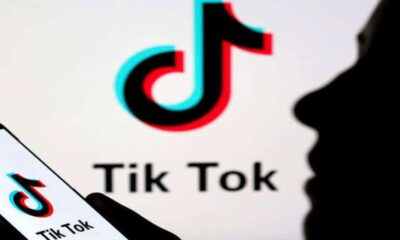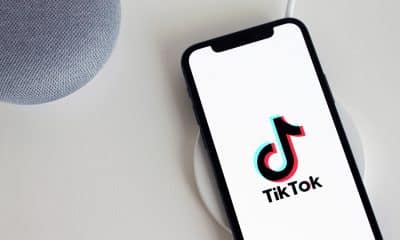Tech
TikTok, ByteDance File Appeal US Government Nationwide Ban

TikTok and its Chinese parent company ByteDance filed a lawsuit in federal court in the United States on Tuesday, seeking to overturn a law signed by President Joe Biden that would require the divestment or prohibition of the short video app used by 170 million Americans.
The corporations filed their action in the United States Court of Appeals for the District of Columbia Circuit, claiming that the statute violates the U.S. Constitution for various reasons, including violating First Amendment free speech protections.
Biden signed the measure on April 24, giving ByteDance until January 19 to sell TikTok or face a ban.
“For the first time in history, Congress has enacted a law that subjects a single, named speech platform to a permanent, nationwide ban,” the firms claim in their case.
The lawsuit stated that the divestment “is simply not possible: not commercially, technologically, or legally.” There is little doubt that the Act (law) will compel the shutdown of TikTok by January 19, 2025, silencing the 170 million Americans who use the platform to communicate in ways that cannot be replicated elsewhere.”
The White House has stated that it wants to restrict Chinese ownership for national security reasons, not a ban on TikTok. The White House and the Justice Department have declined to comment on the case.
TikTok’s political uncertainties
The complaint is TikTok’s latest measure to stave off efforts to shut it down in the United States. Competitors like Snap and Meta seek to profit from TikTok’s political uncertainties and steal advertising dollars from its competitors.
Driven by concerns among U.S. senators that China may use the app to acquire data on Americans or spy on them, the bill was passed by Congress overwhelmingly just weeks after it was presented.
TikTok has denied sharing U.S. user data and accused American politicians of raising “speculative” fears in the case.
Representative Raja Krishnamoorthi, the lead Democrat on a House Committee on China, stated that the proposal is “the only way to address the national security threat posed by ByteDance’s ownership of apps like TikTok.”
“Instead of continuing its deceptive tactics, it’s time for ByteDance to start the divestment process,” he stated.
The rule prevents app stores such as Apple and Alphabet’s Google from supplying TikTok and internet hosting providers from supporting It unless ByteDance divests by January 19.
The suit stated that the Chinese government “has made clear that it would not permit a divestment of the recommendation engine that is critical to TikTok’s success in the United States.”
Conflicts between the United States and China
The firms urged the D.C. Circuit to prevent U.S. Attorney General Merrick Garland from executing the statute, arguing that “prospective injunctive relief” is necessary.
According to the lawsuit, global institutional investors such as BlackRock, General Atlantic, and Susquehanna International Group hold 58% of ByteDance, while the company’s Chinese founder owns 21%, and employees, including around 7,000 Americans, own another 21%.
The four-year battle over TikTok represents a crucial battleground in the ongoing conflict between the United States and China over the internet and technology. In April, Apple announced that China had asked to remove Meta Platforms’ WhatsApp and Threads from its App Store in China because of national security concerns.
According to the lawsuit, TikTok spent $2 billion on steps to secure U.S. users’ data and made additional pledges in a 90-page draft National Security Agreement established through negotiations with the Committee on Foreign Investment in the United States (CFIUS).
According to the claim, TikTok agreed to a “shutdown option” under which the U.S. government could stop TikTok in the U.S. if it violated specified requirements.
According to the lawsuit, CFIUS discontinued significant conversations concerning the transaction in August 2022, and in March 2023, CFIUS “insisted that ByteDance divest the U.S. TikTok business.”
Biden Campaign Using TikTok
CFIUS is an interagency body chaired by the United States Treasury Department that investigates foreign investments in American enterprises and real estate that raise national security issues.
In 2020, judges ruled against President Donald Trump’s attempt to prohibit TikTok and WeChat, owned by Tencent (0700. H.K.).
Resides in the United States. Trump, the Republican candidate running against Democrat Joe Biden in the November 5 presidential election, has shifted course, stating he does not support a ban but that security concerns must be addressed.
If Biden believes ByteDance is progressing, he may extend the January 19 deadline by three months. According to the lawsuit, Biden’s presidential campaign’s continued usage of TikTok “undermines the claim that the platform poses an actual threat to Americans.” The Trump campaign does not use TikTok.
Many experts have questioned if any potential buyer has the financial capacity to acquire TikTok and whether Chinese and U.S. government authorities would authorize a sale.
According to the lawsuit, moving the TikTok source code to the United States “would take years for an entirely new set of engineers to gain sufficient familiarity.”
Source: Reuters






































